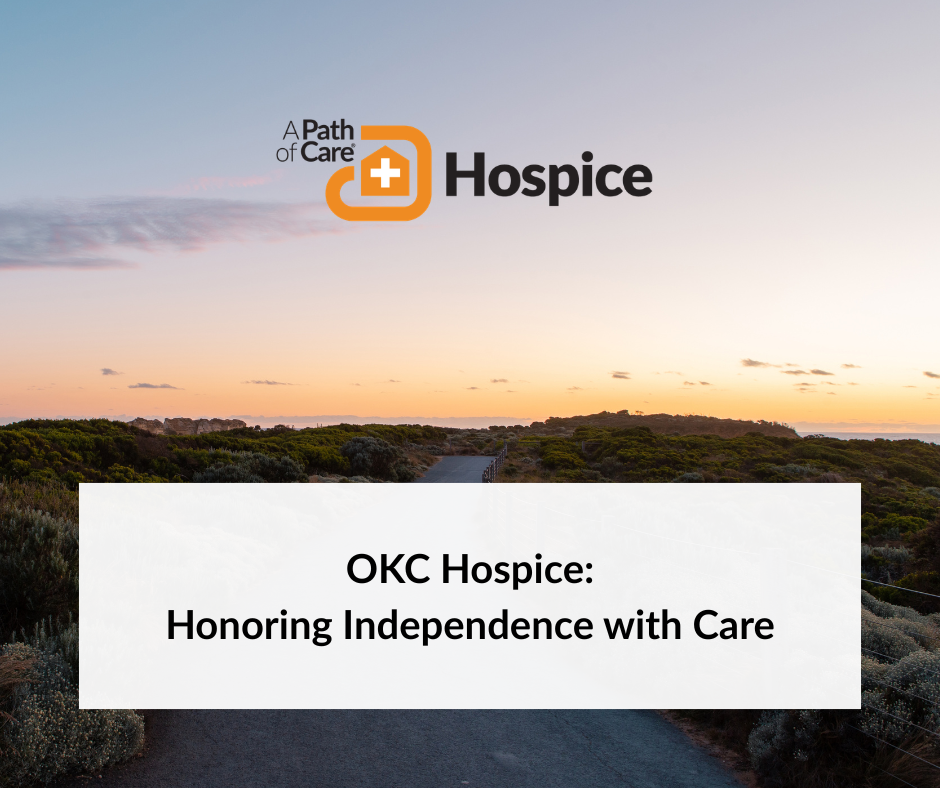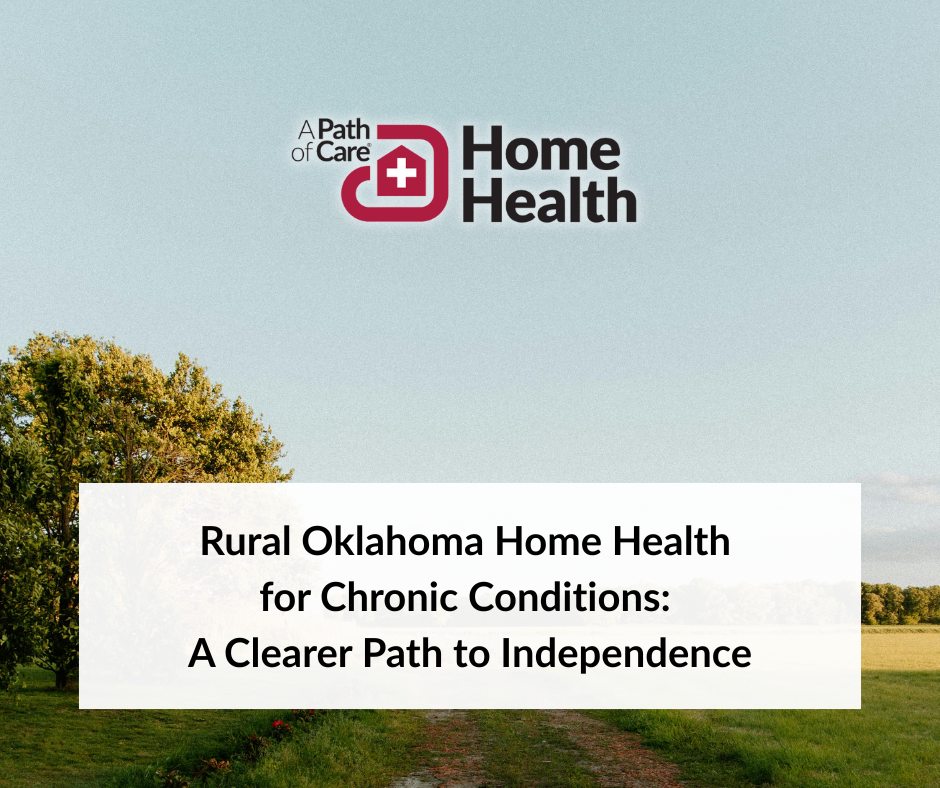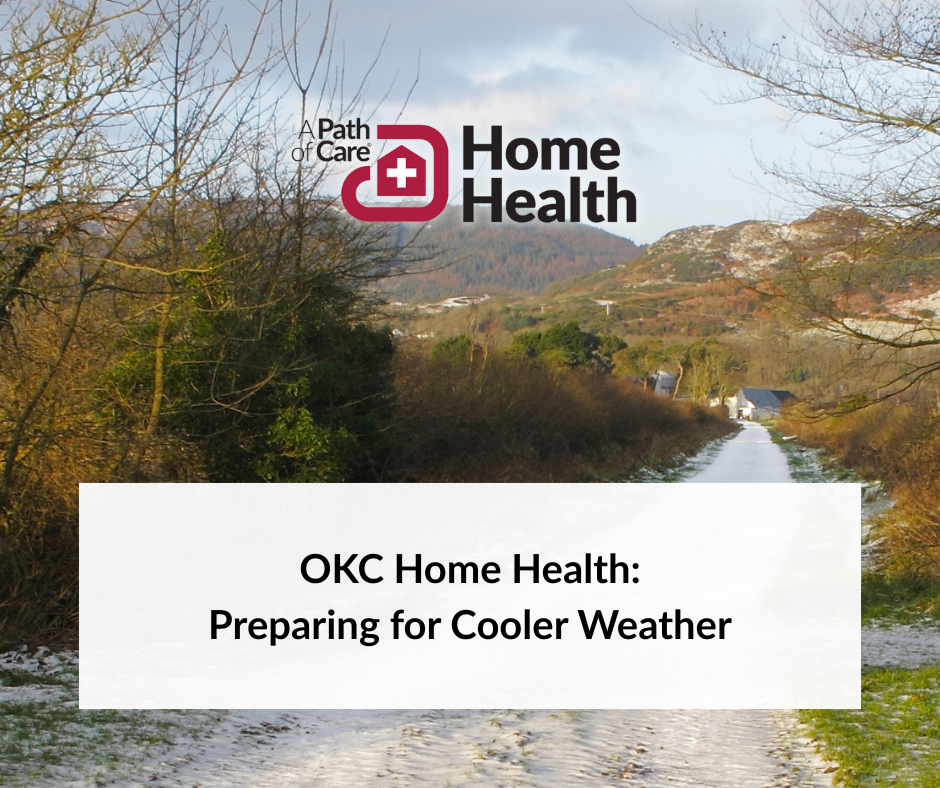When Summer Turns Up the Heat: Staying Safe with a Chronic Condition
You know the feeling well: those sweltering summer afternoons in Tulsa where simply stepping outside feels like walking into an oven. For many people, the heat is more than uncomfortable. If you're living with a chronic condition like heart failure or diabetes, high temperatures can turn routine activities into risky situations. However, with the right knowledge and support, you can manage your health even on the hottest days.
Let's explore practical ways you can keep yourself safe, comfortable, and healthy this summer.
Understanding Summer Risks for Chronic Conditions
Why the Heat Makes Things Harder
Chronic conditions like heart failure and diabetes change how your body responds to extreme temperatures. In the heat, your heart works harder to cool your body. If you have diabetes, dehydration can elevate your blood sugar, and certain medications may become less effective when your body experiences heat stress.
- Heart Failure: Your heart uses extra effort to keep you cool, which can worsen symptoms like shortness of breath or swelling.
- Diabetes: Heat can cause your blood sugar to fluctuate unpredictably. Sweating might mask symptoms of low blood sugar.
For both conditions, dehydration becomes a serious concern. In Tulsa's hot summers, you can become dehydrated before you even notice thirst.
Hydration and Medication Storage: Simple but Powerful Solutions
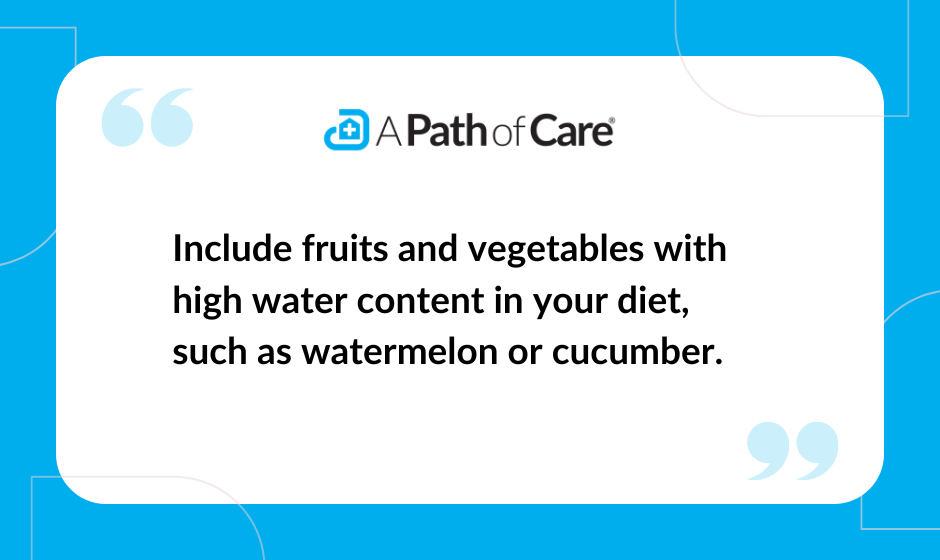
Keeping Yourself Hydrated
Prevention is the cornerstone of managing chronic conditions in summer. Start by drinking water consistently throughout the day, even before thirst strikes. Consider these practical approaches:
- Carry a water bottle with you everywhere you go.
- Include fruits and vegetables with high water content in your diet, such as watermelon or cucumber.
- Limit drinks with caffeine or alcohol, as they increase dehydration.
Some people have to limit fluids because of other health issues. Talk to your A Path of Care clinician about balancing hydration with your medical needs.
Safeguarding Your Medications
High temperatures affect not just your body but also your medications and medical equipment. Some medications must be stored at room temperature, away from direct sunlight and extreme heat. Follow these guidelines:
- Store medications in a cool, dry place, never in a car or near a window.
- Consult your clinician about whether your medication or equipment (like insulin pumps or glucose meters) needs special storage conditions.
- Use insulated containers if you need to take medications with you outdoors.
Our clinicians can help you assess your home medication storage. We provide personalized recommendations to ensure your medications remain effective.
Recognizing the Warning Signs: When to Act Fast
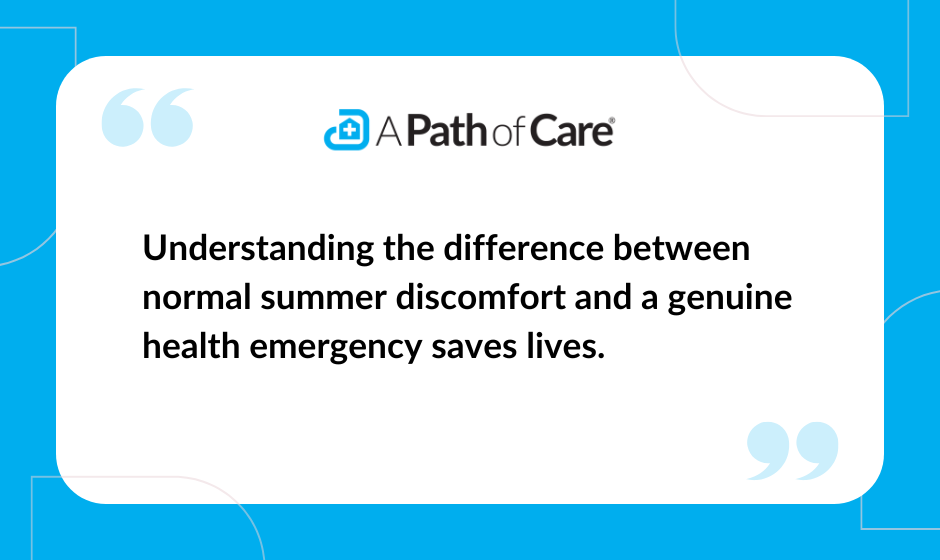
Heat Exhaustion Versus Medical Emergencies
Understanding the difference between normal summer discomfort and a genuine health emergency saves lives. Heat exhaustion develops rapidly for people with chronic illnesses.
Watch for these warning signs:
- Dizziness or confusion
- Excessive sweating followed by cold, clammy skin
- Rapid pulse
- Nausea or vomiting
- Muscle cramps
- Headache
These symptoms create higher risks of complications when you have a chronic condition.
[[cta]]
When to call for help immediately:
- Difficulty breathing or chest pain
- Fainting or severe weakness
- Uncontrolled blood sugar levels
- Severe swelling in legs or abdomen
- Suddenly worsening fatigue or confusion
If you or a loved one experience any of these symptoms, contact emergency services right away.
Adjusting Home Health Visits for the Summer
Flexible Scheduling for Your Comfort
At A Path of Care, we adjust our care approach with the seasons.
How we adapt our care:
- Early morning or late evening visits to avoid peak afternoon heat
- Check-ins via phone or video for routine follow-ups when appropriate
- Personalized assessments to identify additional risks like inadequate cooling or transportation challenges
We work closely with you and your family to create a summer health plan that addresses your unique needs.
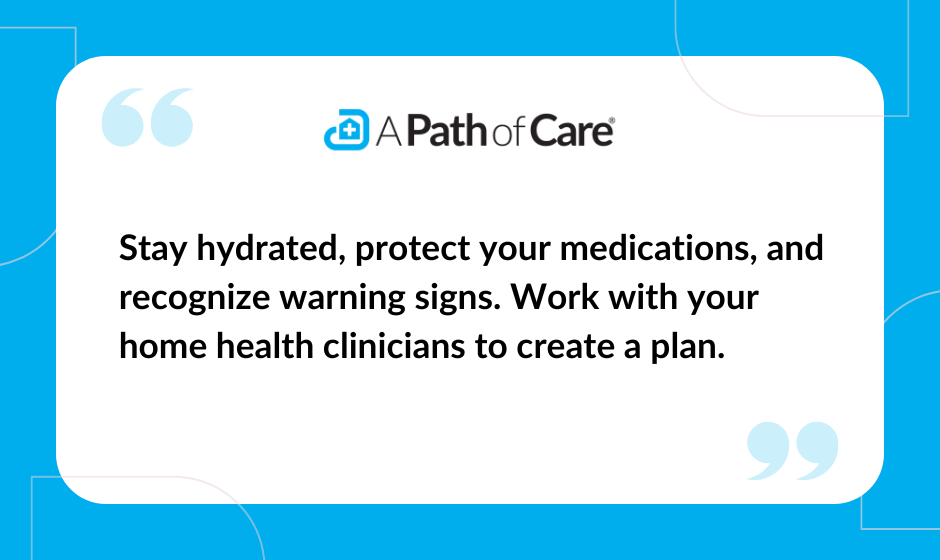
Summer Safety is a Team Effort
Managing a chronic health condition during Tulsa's summer heat doesn't need to overwhelm you. You can maintain your health and enjoy the season. Stay hydrated, protect your medications, and recognize warning signs. Work with your home health clinicians to create a plan.
We're here to help—every step of the way.
If you'd like to learn more about how our home health services can make your summers safer and more comfortable, contact us today. Your well-being remains our priority, regardless of how high the temperature climbs.

